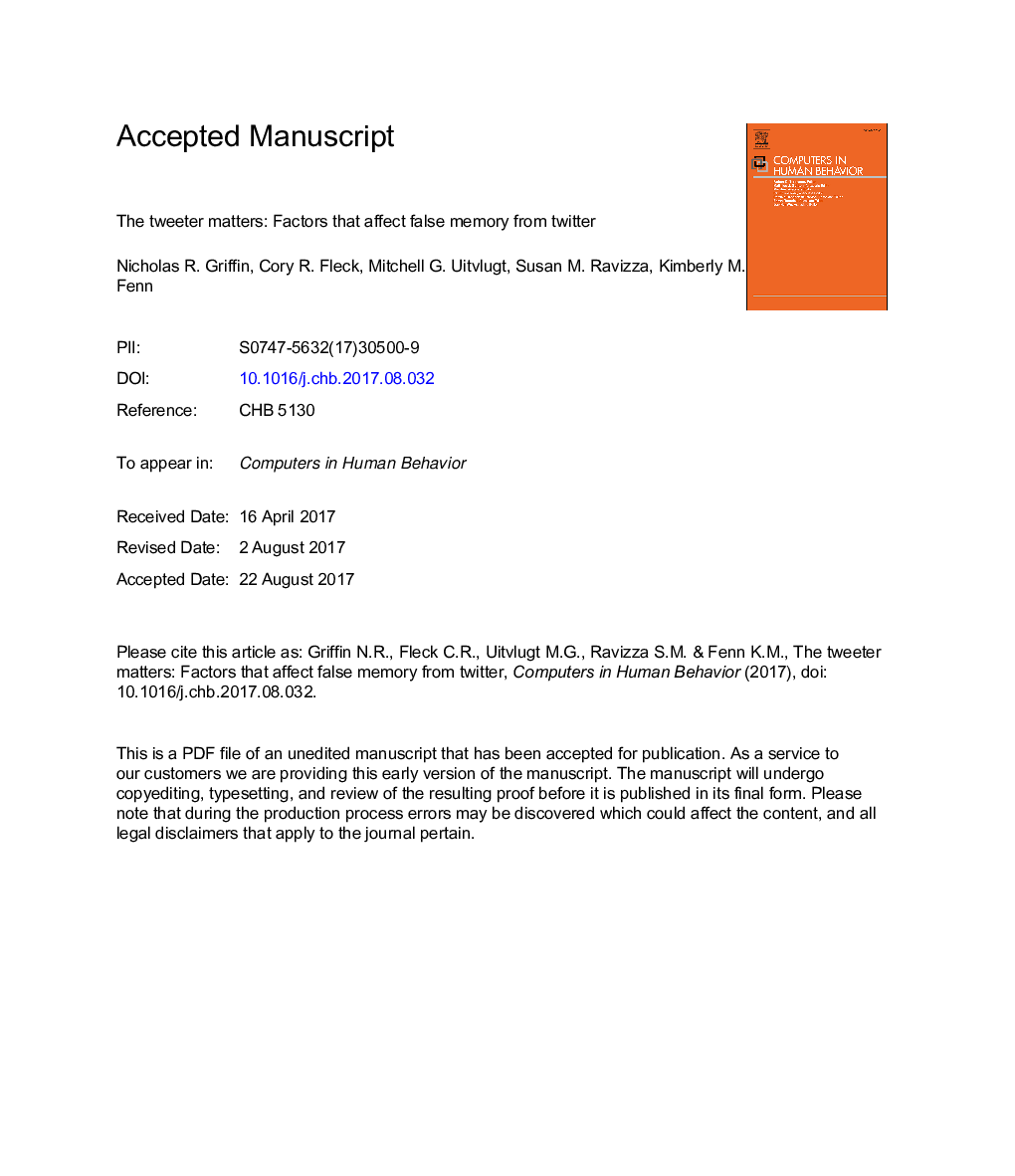| Article ID | Journal | Published Year | Pages | File Type |
|---|---|---|---|---|
| 4937027 | Computers in Human Behavior | 2017 | 20 Pages |
Abstract
Social media websites have dramatically increased in popularity. Information on these sites does not require verification and may be inaccurate. We investigated how familiarity with content and Twitter authors influenced false memory. Participants from Michigan State University (MSU) read an article about college basketball followed by a Twitter recap that contained false information. The article discussed either MSU or the University of Iowa; the Twitter feed was purportedly written by students from one of the schools in a 2Â ÃÂ 2 design. Lastly, participants completed recognition and source memory tests. Correct and false recognition were similar across conditions. In an analysis including source test results, we found higher false memory for the Iowa article than the MSU article. We also found an interaction between article and Twitter author, opposite of our hypothesis, such that false memory was greatest for conditions with incongruent article and Twitter author (e.g., Iowa article and MSU Twitter). Thus, we replicated earlier work showing higher memory distortion for unfamiliar content. We also found preliminary evidence that readers may take into account the relationship between authors and content. This is an important first step in understanding how false memory arises from social media, an everexpanding cultural influence.
Related Topics
Physical Sciences and Engineering
Computer Science
Computer Science Applications
Authors
Nicholas R. Griffin, Cory R. Fleck, Mitchell G. Uitvlugt, Susan M. Ravizza, Kimberly M. Fenn,
